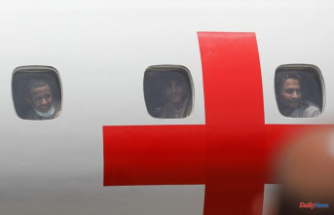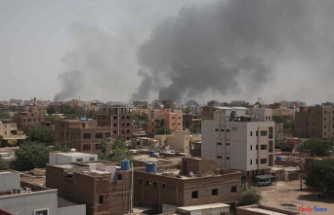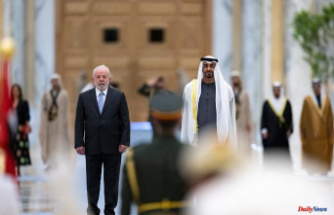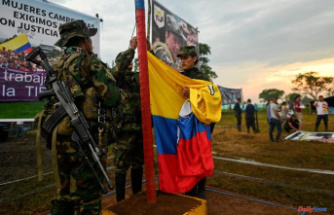Following a trial before military justice in Kinshasa, six Congolese were sentenced to life imprisonment on Friday, April 7, for the assassination of the Italian ambassador to the Democratic Republic of Congo (DRC), Luca Attanasio, in February 2021, during an armed attack on his vehicle. But the trial did not, however, make it possible to remove all the gray areas in this case.
The death penalty had been requested by the public prosecutor but was not retained by the military court of the Kinshasa-Gombe garrison, which rendered its decision in open court. The defense, which had pleaded acquittal, immediately announced to Agence France-Presse that it was going to appeal. Another trial should therefore take place before a military court.
Convoy ambushed
The verdict was read in the presence of five defendants - André Murwanashaka Mushahara, Issa Seba Nyani, Antoine Bahati Kiboko, Amidu Sembinja Babu alias Samuel Ombeni and Prince Marco Shimiyimana - the sixth being on the run. They had been on trial since October 12, at the rate of one hearing per week, inside the Ndolo military prison, where they had been brought after their arrest in January 2022 in the east of the country.
Presented as members of a gang of common criminals, highway robbers and kidnappers, they were found guilty of the murder of the ambassador, his Italian bodyguard, rifleman Vittorio Iacovacci, and a Congolese driver from the World Food Program (WFP), Mustapha Milambo.
That day, a convoy of two WFP vehicles, leaving from Goma, capital of North Kivu and located in the east of the country, fell into an ambush about twenty kilometers from the city, on the outskirts of the park. national of Virunga. Renowned for its gorillas, the park is also known to be a haven for armed groups, in this region plagued by violence for nearly thirty years.
According to the account given at the hearing, the convoy was cut in two. The vehicle in which the ambassador is located is immobilized, the assailants shoot the driver, whose body is abandoned by the side of the road. The other occupants of the vehicle are taken hostage and taken to the bush.
Alerted, the park rangers set off in pursuit, violent exchanges of fire ensue. The ambassador's bodyguard is killed instantly, the diplomat, seriously injured, will die after being transported to a hospital in Goma.
Many gray areas remain
That same evening, the DRC authorities accused a group of Rwandan Hutu rebels, the Democratic Forces for the Liberation of Rwanda (FDLR), of being responsible for this "terrorist" attack, which the rebels had denied. But already, other sources evoked rather an attempted kidnapping, with a ransom demand, which would have gone wrong.
This version prevailed when, almost a year later, the Congolese police announced the arrest of criminals, including those who attacked the ambassador's convoy. The reports drawn up during the police interrogations are unequivocal.
But during the trial, the defendants denied everything and claimed that their confessions had been extracted under torture, repeating that they had nothing to do with the death of the ambassador. The trial therefore did not provide any new information on the circumstances, the perpetrators and any sponsors of the ambush.
No witness or expert was also called to the bar, which the defense deplored, who would have liked to hear the park rangers or a survivor of this tragedy, another WFP employee.
In her pleadings, she considered that the prosecution had proven "neither the criminal participation [association des malfaiteurs], nor the illegal possession of weapons and ammunition of war". A civil party to the trial, the Republic of Italy, hostile to the death penalty, had requested that the defendants be "sentenced to a penalty of deprivation of liberty".
The death penalty is still often requested and pronounced in the DRC in cases of national security, but it has not been applied for twenty years and is systematically commuted to life imprisonment. The tribunal also awarded the Republic of Italy the equivalent in Congolese francs of two million dollars in damages.












